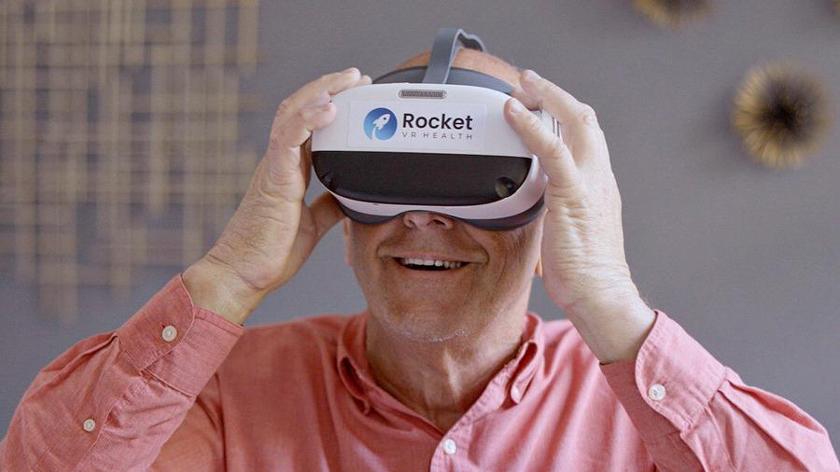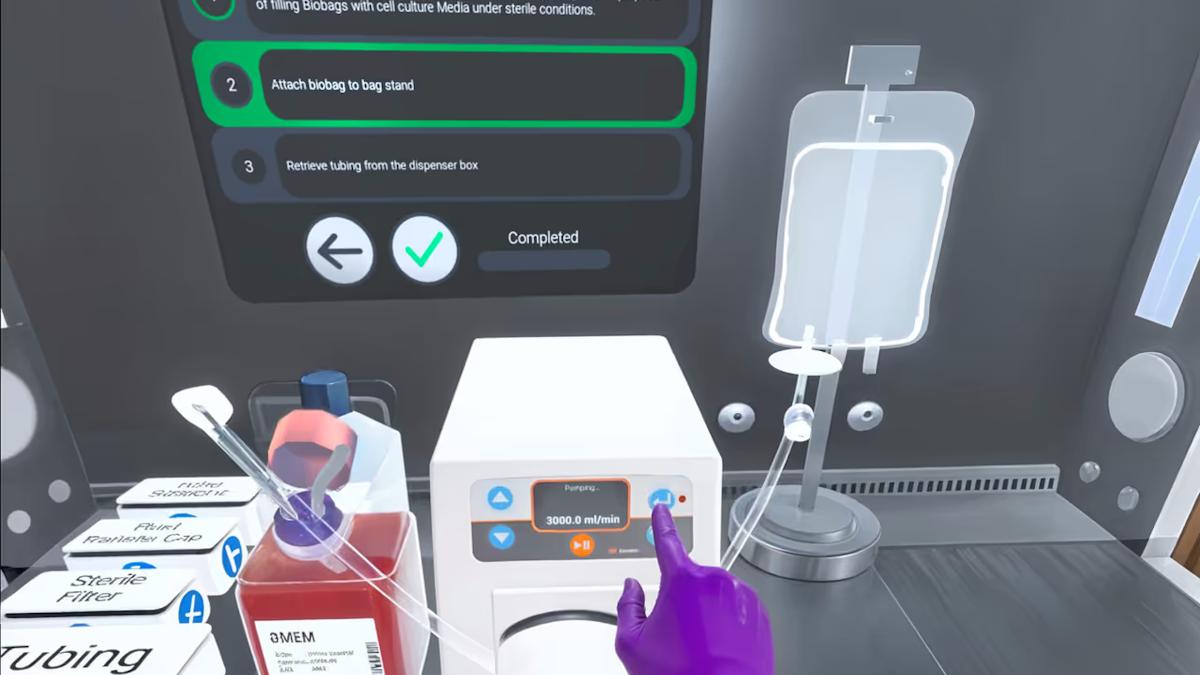Could VR therapy improve mental health in cancer patients?

Massachusetts General Hospital in the US has started a clinical trial of a virtual reality (VR) approach to supporting the mental health of patients with cancer, developed by Rocket VR Health.
The 80-subject pilot study is testing whether offering immersive therapies and coaching can improve the quality of life of adults diagnosed with blood cancers, as well as alleviate symptoms and reduce psychological distress.
The patients are undergoing haematopoietic stem cell transplantation (HCT) – also known as a bone marrow transplant – at MGH, a procedure that requires them to be hospitalised for four weeks or more, often with debilitating side effects from the procedure, like fatigue, loss of appetite, and hair loss.
At the heart of the project is a recognition that the mental health issues faced by cancer patients tend to be clinically distinct from other mental health conditions, often a complex mix of fear, sadness, anxiety and depression, and sometimes feelings of guilt and anger.
Rocket VR Health’s VR platform has grown out of a partnership with researchers at MGH stretching back to 2021, when the two organisations started working together on developing a lighter, more ergonomic, and more affordable VR platform than had been available for use in healthcare before.
The resulting digital therapeutic (DTx) is delivered as a standalone Pico Neo 3 headset, recently launched by by ByteDance subsidiary PICO, which is powered by a Qualcomm XR2 processor, weighs just 1.3 pounds, and has a 2.5 hour battery life.
The DTx takes the form of a four-week interactive and gamified therapy that includes interactions with doctor holograms and meditations taking place in nature-based locations, with access to peer support groups and community events.
Rocket VR Health says that its DTx can be used to bring patients, families, and clinicians closer together within a ‘metaverse’ community.
“Up until now, VR technology has been expensive, bulky, [and] difficult to use and operationalise within a healthcare environment,” said Rocket VR Health’s co-founder and chief executive, Sid Desai.
“Today, we can deliver therapeutic VR interventions on lightweight, affordable, and ergonomic headsets with therapeutic experiences that are more engaging than what has been possible in the past,” he added.
“This study will guide us towards validating the efficacy of our digital therapeutic in our effort to build the go-to distress management solution for hospitalised patients.”
Desai also said the start of the study is a “major milestone” in the company’s bid to eventually make a self-administrable, VR DTx that can benefit the 26 million or so patients going through long-term hospitalisation in the US each year.
The new study ties into a wider trend in healthcare to look at the use of VR technologies to help patients achieve better outcomes in areas like surgery, pain management, physical and cognitive rehabilitation, and training support for dialysis patients, as well as mental health.












